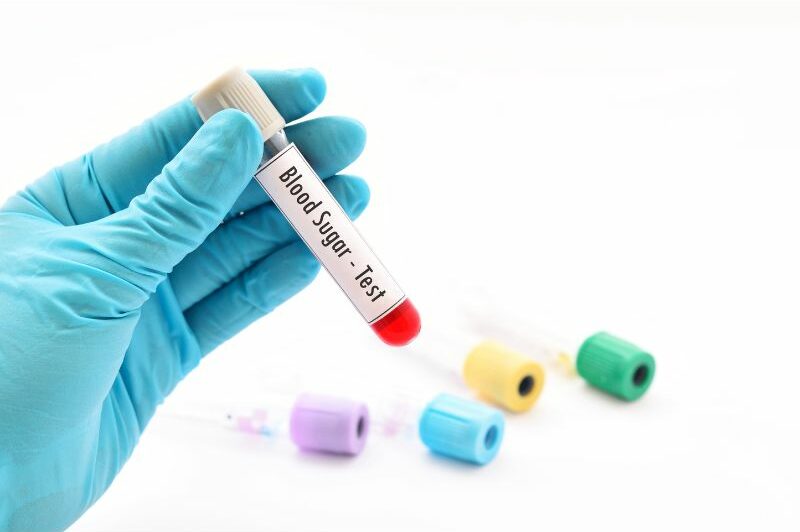Are you aware of how deeply your blood sugar levels impact your energy, mood, and overall health?
Blood sugar regulation is at the heart of maintaining your energy, mood, brain function, and overall health. Yet, many misconceptions surround this crucial aspect of our well-being. let’s start by breaking down some of the most common myths about blood sugar, identify the often-overlooked signs of imbalance, and explore what happens in your body when you consume too much sugar. By the end, you’ll have a clearer understanding of how to take control of your blood sugar levels and why it matters for your long-term health.
Blood Sugar Myths and Facts
Misconceptions about blood sugar are everywhere, and they can lead to poor health decisions. Let’s clarify some of the most common myths:
Myth: You need frequent snacks to keep your blood sugar balanced.
- Fact: While it might seem like snacking frequently helps maintain your blood sugar levels, it can actually expose your cells to repeated bursts of sugar and insulin. This pattern can contribute to insulin resistance over time. Feeling the need to snack often is usually a sign of blood sugar swings rather than stable blood sugar regulation.
Myth: If you’re thin, your blood sugar must be fine.
- Fact: The distribution and type of fat in your body are more important than your outward appearance. Even people who look thin can have unhealthy visceral fat around their internal organs, which can contribute to inflammation and insulin resistance.
Myth: My body’s changes are due to hormones, not blood sugar.
- Fact: Hormones do influence your body, especially during life stages like menopause. However, hormones like estrogen interact with insulin, cortisol, and thyroid hormone, all of which affect your blood sugar balance. This interconnectedness means that hormone changes can impact your blood sugar regulation.
Myth: I need to focus on improving my cholesterol, not my blood sugar.
- Fact: These issues are interconnected. When you consume more sugar than your body can use for energy, the excess is converted into triglycerides, increasing LDL cholesterol. So, managing your blood sugar is crucial for maintaining healthy cholesterol levels.
Myth: Only people with diabetes need to pay attention to blood sugar.
- Fact: Insulin resistance, the precursor to diabetes, can develop years before a diabetes diagnosis. Early attention to blood sugar regulation can prevent the progression to diabetes and other related health complications.
Signs of Blood Sugar Imbalance You May Not Know
You might not immediately realize that you have a blood sugar problem based on how you feel alone. The only way to know for sure is through testing. However, there are several outward signs that could indicate an issue:
- Belly fat: Accumulation of fat around the abdomen can be a sign of insulin resistance.
- Sugar cravings: Frequent cravings for sugary foods may point to blood sugar imbalances.
- Energy crashes: If your energy plummets after meals, this could be a result of blood sugar fluctuations.
- Brain fog: Difficulty concentrating or a general sense of mental cloudiness is often linked to blood sugar levels.
- Mood swings: Blood sugar instability can lead to irritability and mood swings.
- Skin tags: These small growths on the skin can sometimes be a sign of insulin resistance.
- Darkened skin creases: Areas of darkened skin, particularly in creases, can also signal insulin resistance.
Left unchecked, these signs can evolve into more serious health issues, including inflammation, weight struggles, and heart disease.
What Happens When You Eat Too Much Sugar?
Let’s break down what happens at the cellular level when you consume excessive sugar:
- The Sugar Rush: When you eat a high-sugar food or drink, it quickly turns into glucose in your bloodstream, causing a sharp rise in blood sugar levels.
- The Insulin Spike: This spike triggers your pancreas to release a large amount of insulin, a hormone that helps transport glucose into your cells for energy.
- The Crash: Because of the sudden spike, your blood sugar drops dramatically once the glucose is absorbed into your cells. This can lead to a crash, leaving you feeling hungry, shaky, and mentally foggy.
Your body wasn’t designed to handle large amounts of sugar consistently. Over time, repeated sugar spikes can lead to insulin resistance, where your cells become less responsive to insulin and less effective at using glucose. This cycle is the main cause of insulin resistance.
Factors Influencing Blood Sugar Balance
While some factors like genetics and age are out of your control, there are many other aspects of your lifestyle that you can manage to maintain healthy blood sugar levels:
- Diet: Focus on balanced meals with healthy fats, fiber, and protein to support stable blood sugar levels.
- Exercise: Regular physical activity helps improve insulin sensitivity.
- Stress: Chronic stress can elevate cortisol levels, which in turn can increase blood sugar.
- Hormones: Particularly for women, understanding how hormones interact with blood sugar is crucial for overall health.
- Sleep: Prioritizing quality sleep is essential, as poor sleep can disrupt insulin function and blood sugar regulation.
By optimizing these factors, you set yourself up for better long-term health and a lower risk of developing insulin resistance or diabetes.
Take Control of Your Health
Understanding how to manage your blood sugar isn’t just about avoiding diabetes—it’s about enhancing your overall health, energy, and well-being. If you’re ready to take the next step in optimizing your health, we’re here to support you.
Visit our offerings page to learn more about how we can help you reclaim your vitality and thrive.
Or follow us for more tips and insights on living a healthier, longer life. Click here to join our community of empowered individuals and stay informed about the latest health research and practical wellness advice.



